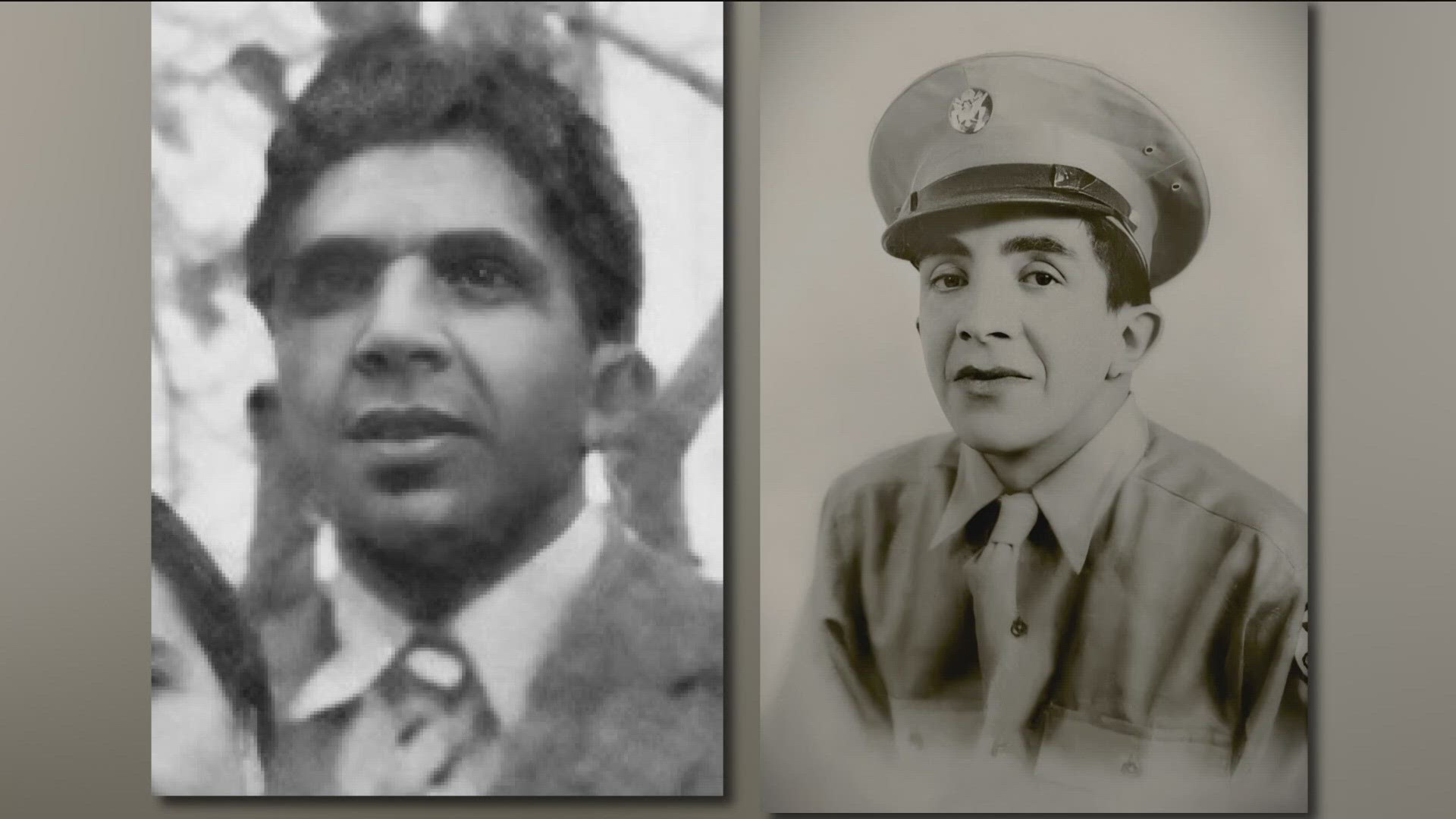SAN DIEGO — A son who uncovered his father's military service during World War II led him to learn about the discrimination and determination seven brothers and nephews faced as Mexican-American United States service members.
As Richard Nogales researched his family history, he learned they immigrated from Mexico and grew up poor in the mountains of New Mexico. But their family's service to our country is rich in history.
A family of seven brothers and nephews who lived under the same roof, all signed up or were drafted during World War II.
“These soldiers all experienced frontline horror,” said Nogales.
The Nogales and Flores brothers were deployed across the world, fighting in some of the most destructive battles in and above the Atlantic to the Arctic Oceans, France, and Germany to the invasion of the Philippines.
Yet, because of their Mexican-American heritage, they were told "no" several times in the military.
“The consensus was in the Army was that if you were Mexican American or Mexican that you didn't have the intelligence or the leadership skills to be an officer,” said Nogales.
During World War II, his cousin, Ramon Flores, later became a lieutenant for the Army Air Force and flew 35 missions over Germany.
“My cousin was one determined young man,” said Nogales.
He shared two photos of another cousin, Francisco Nogales, in and out of uniform that were strikingly different.
“They literally whited out his face to make him look more white,” said Nogales.
Nogales was assigned to an Army tank destroyer and landed in Normandy right after D-Day.
“You are going to see the most horrible conditions in the world but we have to change the way you look because we don't want dark-skinned people in our yearbooks,” said Nogales.
But the discrimination did not defeat the Nogales and Flores families who proudly served their country.
“They fought for the country, but I think they fought as much for their new families [brothers],” said Nogales.
He said his dad didn't talk much about the war until he was older. Nogales says he remembers as a kid finding his father's medals including a Purple Heart.
“My father would tell you when you are in a bomb run, and those flak shells are going all around you in the plane, it was shaky, like consider the worst turbulence you ever been in. That was a bomb run,” said Nogales.
His father, Cruz Nogales, was a radio operator for the Army Air Force 493rd bomb group in France and Germany.
He spent three weeks in the hospital and reunited with his crew after he was hit with a flak shell.
“One thing I can tell you about my father, he could not disappoint his brothers,” said Nogales.
On the frontlines, he didn't show it but Nogales says he could read the pain in his father's letters.
“Just the feeling that when he walked into the aircraft, that he was walking into his coffin. And yet he still did it because of his brothers,” said Nogales.
Nogales says he is a self-proclaimed, history buff and thought he knew about World War II from books and movies.
“History is not about D-Day and defeating the Germans in northern France, it's about the personal stories that not only them, but the families and afterwards, the adjustment,” said Nogales.
He says it was the letters, national archives, Facebook groups, and conversations with his father and his family members, where he grew a deeper pride for his Mexican-American heritage and their service in the United States military.
“These are determined young men, they would not be told no,” said Nogales.
The brothers and nephews have more than the medals to prove their commitment to their country.
“I have to credit my grandparents they instilled confidence and that they were important,” said Nogales.
Nogales says he has shared these stories with Congressman Mike Levin's office in hopes of including them in a potential national Hispanic heritage museum.
WATCH RELATED: 'God gives the toughest battles to the strongest soldiers' | Veteran's story on overcoming a traumatic brain injury

